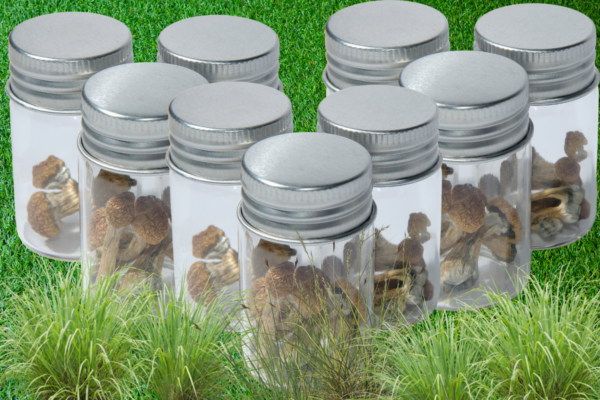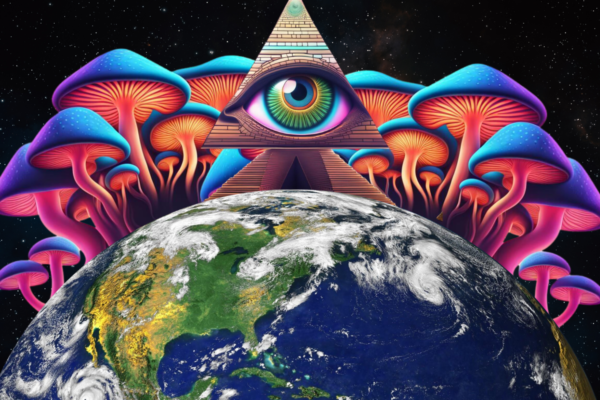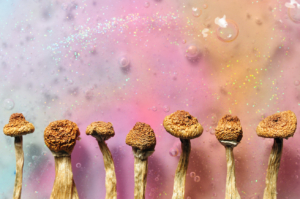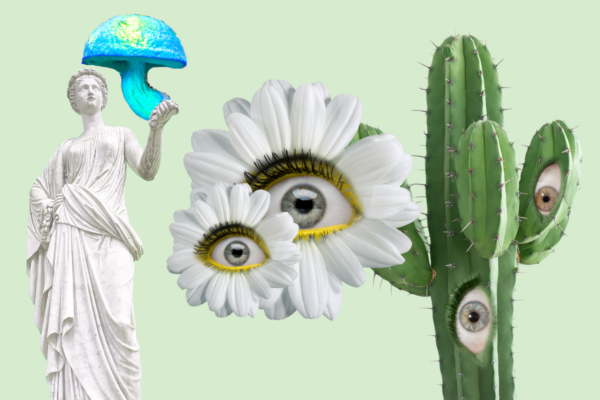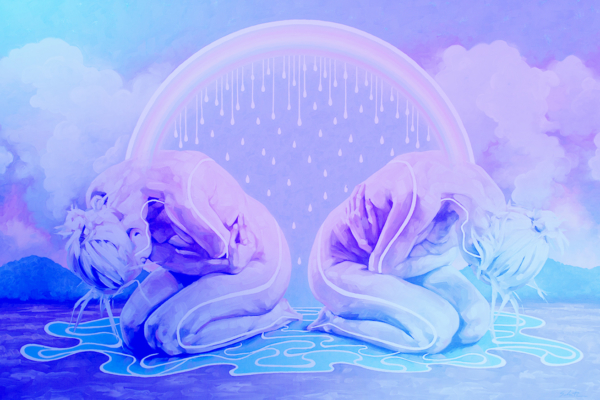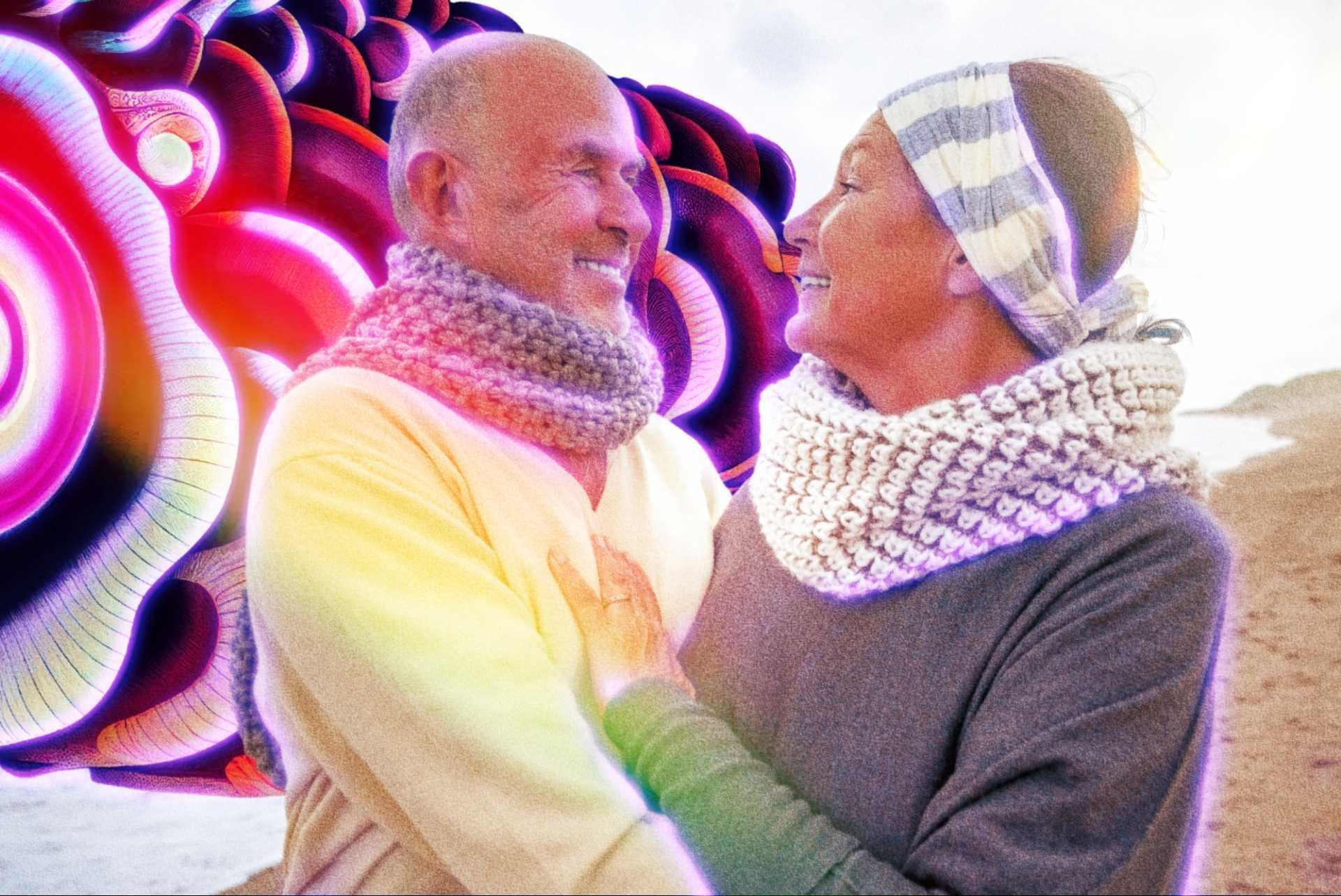
As the global population ages, the question of whether psychedelics are safe for older people becomes increasingly relevant. While the potential benefits of psychedelic-assisted therapy for a range of psychological conditions have been demonstrated in clinical trials, the safety of these substances for older adults remains a concern.
Studies on older people is imperative, as close to 95% of people over 60 have at least one chronic condition, with nearly 80% having two or more. A staggering 75% of people over the age of 60 have cardiovascular disease, and conditions like this can be exacerbated and become dangerous when mixed with drugs like psychedelics. In addition, older people can develop mental health conditions and distress from their diagnoses, such as anxiety stemming from cancer or terminal diseases. As the benefit of psychedelics are further elucidated, older populations should also have the opportunity to be treated with them too, if they so choose to. Thus, understanding if psychedelics are safe to take in the presence of underlying conditions helps us better assess their safety to be able to provide new treatments to a wider range of patients.
What Does the Research Say?
Now, a paper titled The Safety and Efficacy of Psychedelic-Assisted Therapies for Older Adults: Knowns and Unknowns, published in The American Journal of Geriatric Psychiatry, has provided more insight into the safety of psychedelics for older people. In this review of clinical trials over the last 30 years involving psilocybin and MDMA, the authors have found no indication of severe adverse reactions in any of the participants, including older adults. But this is to be taken with a grain of salt, as the sample size of people over 60 was small — the average age of patients in these clinical trials was 41.
Cardiovascular Disease and Psychedelics
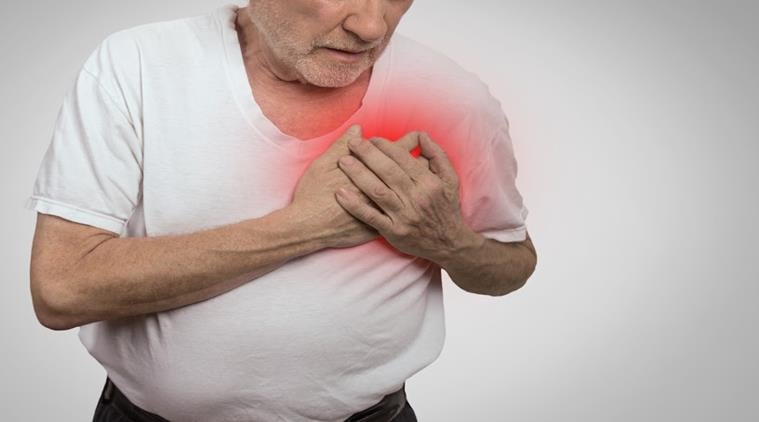
The authors mention that some side effects of psychedelics include increased blood pressure and heart rate, which can be dangerous among older populations. Their study found that some clinical trial patients experienced increased blood pressure, sometimes reaching critical levels, but there were no reported heart attacks or strokes in any of the clinical trials.
Brian Anderson, assistant clinical professor of psychiatry at the University of California, San Francisco and one of the authors of the review said of this, “We have certainly seen a few participants become rather hypertensive when their blood pressure really goes up during the acute effects of the medicine, but that has not been associated with any sort of neurologic damage. No detectable strokes have happened in these participants.”
For 30 years’ worth of data, that may seem like a relatively good statistic. However, the review authors caution that the generalizability of psychedelic therapy’s effects on older populations – especially those who are affected by chronic illnesses – is still unknown. The studies that have been done have been on highly screened people according to C. Bree Johnston, who led the review. So, people who are generally healthier than people in the average population are usually selected and results cannot be generalized to everyone.
The authors note that their review was investigative and exploratory rather than trying to present conclusive answers. Future reviews analyzing individual results of older patients in clinical trials are needed in order to conclusively answer and generalize the data for the mass population.
Looking at Uses of Psychedelics for Older People
Psychedelic-assisted therapies could focus on more than treating health conditions, and also aid the experience of aging itself. “There’s so much ageism in our culture,” says Johnston. “And old age can be a time of great happiness and growth and meaning…[but] old age is [also] a time of transition that many people struggle with.” With the potential to treat a range of psychological conditions, there is growing interest in the use of psychedelics as a tool for personal growth and self-exploration, which may be particularly relevant for older adults who are reflecting on the meaning of their lives. Johnson believes that psychedelic-assisted therapy can help older adults sit down and re-example what’s important in life, during a confusing transitory time in life, but this can only happen if we understand if these substances are safe to begin with.
In conclusion, while there is much that remains unknown about the effects of psychedelics on older adults, the potential benefits of these therapies cannot be ignored. As the global population continues to age, there is a growing need to explore safe and effective treatments for the psychological challenges associated with aging and chronic illness. With careful attention to dosing and monitoring, psychedelic-assisted therapy may offer a valuable tool for improving the quality of life of older adults. Further research is needed to better understand the risks and benefits of these therapies for older adults, but the promise of these treatments cannot be overlooked.
